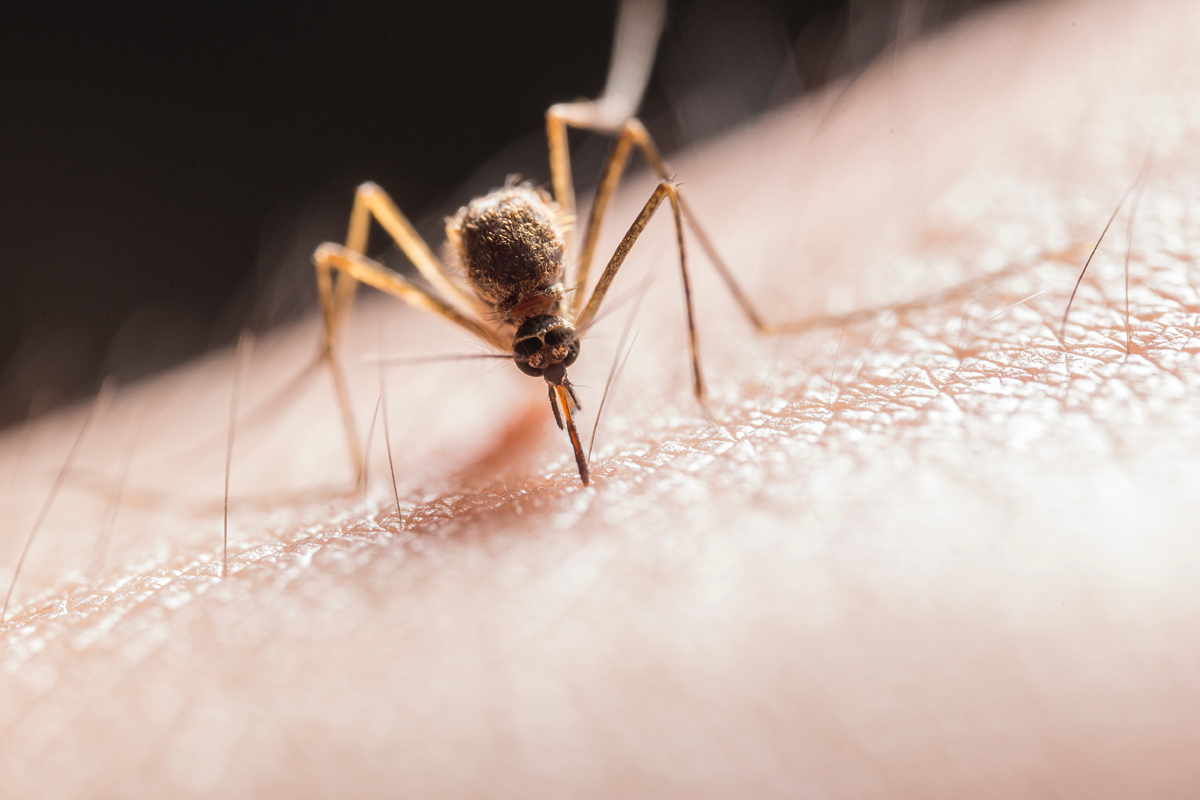If you’ve ever wondered which mosquito control methods work and which ones will simply drain your pocketbook, read on for a comprehensive summary of the good, the bad and the dangerous.
1.) Get an industrial grade fan for your patio or deck. Mosquitoes have weak, fragile wings. They are easily swept away by changing currents.
2.) Remove any standing water from the property. Plastic pools, bird baths, buckets, ditches and puddles are all excellent places for mosquitoes to breed. You’ll also want to clear clogged gutters and pipes.
3.) Look into cedar oil. The U.S. Department of Agriculture recognizes cedar oil as the number one biological insect control agent, proven superior to chemical counterparts. Various spray and fogging techniques are used to control a wide variety of insect infestations on commercial farms and neighborhood lots.
4.) Drink frozen or heavily iced beverages to lower your body temperature and diminish sweating. The carbon monoxide you expel while breathing increases with heat and exercise, guiding mosquitoes to your vicinity. Your personal heat and body odor contribute to the cycle, making you more attractive than other candidates in the yard.
5.) Deodorize your feet. If you favor sandals and flip flops over socks and tennis shoes, beware that exposed feet give off a powerful odor which attracts mosquitoes. Try a good unscented powder to control foot moisture.
6.) Look into lemon eucalyptus oil. The U.S. Center for Disease Control issued a statement in 2008 recommending lemon eucalyptus equally to deet for mosquito control. The primary disadvantage with lemon eucalyptus is that it’s normally sold in small bottles as a personal insect repellent. Cedar oil solutions are available in gallon-sized containers and wholesale concentrates, making them much more cost effective for treatment with fogging machines and wide area sprayers.
7.) Cover up! It may sound obvious, but the most horrifying mosquito episodes occur when outdoor enthusiasts fail to dress appropriately. Take advantage of the standard drop in temperature after dusk. Opt for long sleeves and full length pants, especially if you have mosquito allergies or sensitive skin. Keep an extra pair of slacks in the car or backpack for summertime emergencies.
8.) Go light on the beer. Mosquitoes are attracted to the alcohol essence that is released through your pores.
9.) Forget the perfume. Certain members of the insect community will appreciate your scent even more than the humans you want to impress. Mosquitoes love perfume, especially floral or fruity fragrances.
10.) Invest in a mosquito tent for outdoor gatherings. Your guests will thank you for creating a party atmosphere conducive to fun and relaxation.
Now for some worthless measures…
According to the American Mosquito Control Association, the following mosquito control tactics simply don’t work as well as consumers perceive:
1.) Bugs Zappers. Two independent studies found no significant difference in the number of mosquitoes found in yards with or without bug zappers. Such devices catch huge numbers of non pest insects and relatively few mosquitoes.
2.) Citronella Candles: Citronella candles may produce a mild repellent effect, but they don’t offer a significant increase in protection.
3.) Electronic Devices: At least 10 studies have found ultrasonic devices to be totally useless.
4.) Backyard Misting Systems: Misters needlessly inject pesticides into the environment, affecting mosquitoes and beneficial insects alike.
The Dangers of Conventional Pesticides
Before you consider using a chemical delivery system, take a moment to research the active ingredient online. You may not like what you find. Traditional DEET products are notorious for causing rashes, headaches, nausea and disorientation. Even pyrethrum based insecticides derived from chrysanthemums are not as safe as once believed. According to an E.P.A. survey of poison control centers, pyrethrum based pesticides cause more insecticide poisoning incidents than any other pesticides except for organophosphates.
Due to widespread controversy over traditional insect control methods, cedar oil insect formulations have gained increasing popularity and respect in the pest control industry. In 2006, at the request of the U.S. Army, a team of world renowned organic scientists expanded upon traditional cedar oil formulations by introducing a quartz rock carrier to deliver a lethal dose of substance at the microscopic level. This nano-sized delivery system closes the breathing pores of pheromone driven insects on contact and creates a lasting a barrier that discourages new insects from entering sprayed territory.
At the forefront of the cedar oil movement is a company based in the heart of Texas and marketed at http://www.wholesalepesticides.com Their product is recognized by the U.S. Department of Agriculture as the number one biological insect control formula, proven superior to chemical counterparts. The formula is strong enough to battle crop pests on commercial farms yet safe enough to treat neighborhood yards against mosquitoes and venomous snakes. It’s so gentle to humans and animals that it’s endorsed by Animal Wellness Magazine as a flea treatment and worn by U.S. soldiers to repel fleas, ticks, mites, lice and chiggers.
Indoor cedar oil fogging techniques are particularly effective in the control of cockroaches, bedbugs, ants and termites. The dry, hazy mist penetrates unseen cracks and crevices in a way that traditional spraying methods can’t duplicate. Fogging machines are exceptionally useful to those who live in apartment buildings and wooded areas where repeat infestations are common. The amount of money saved on repeat visits from exterminators can be astronomical.
The Author:
Bethany Crist is a published author with one novel and more than 100 newspaper articles to her credit. As an animal rights enthusiast, she enjoys donating to animal rescue missions and encouraging others to do the same through networks such as Chipin.
